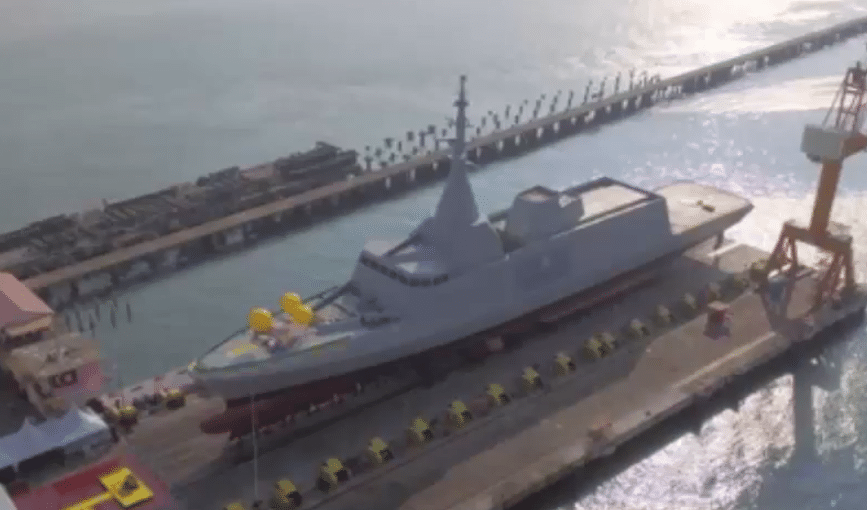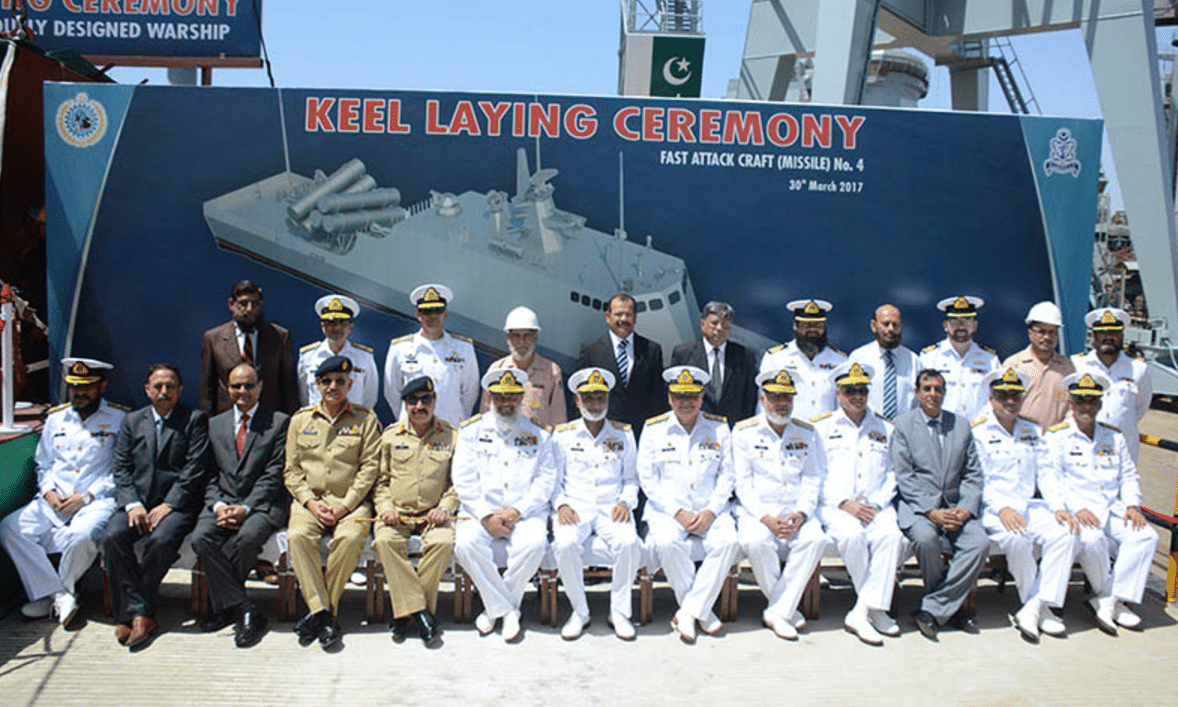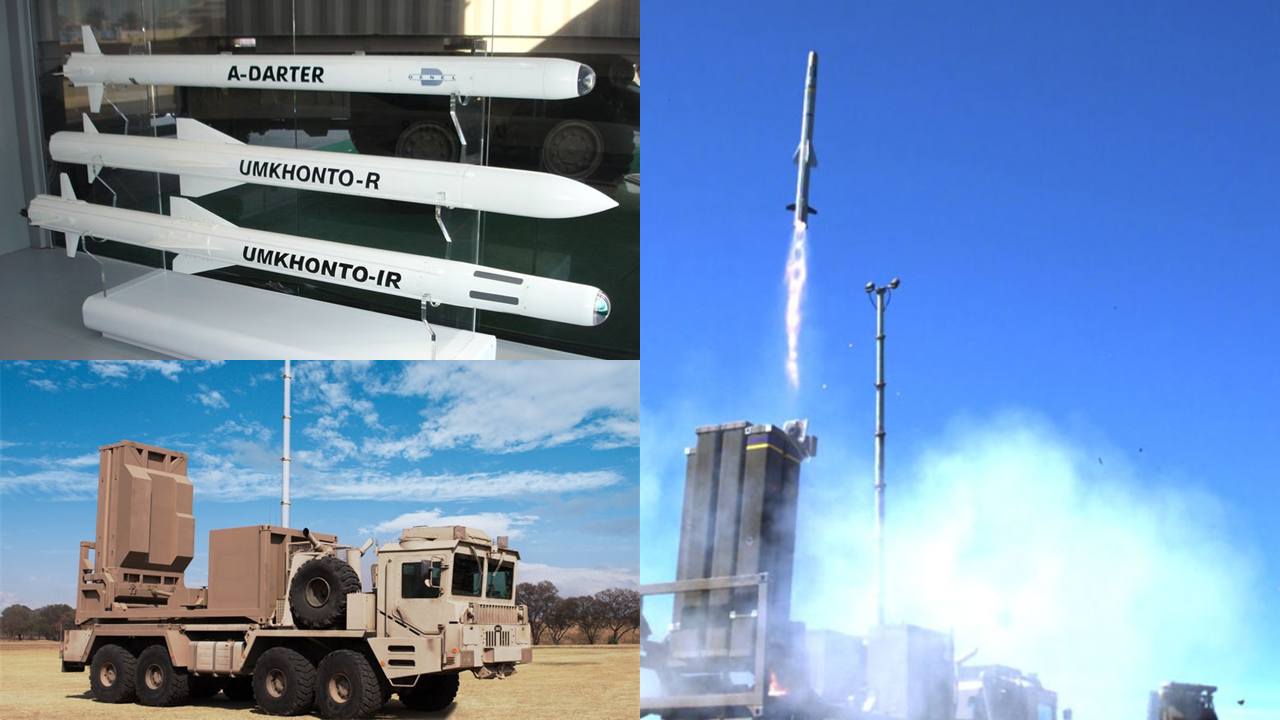2387Views 13Comments

Malaysia launches its first DCNS Gowind-based Littoral Combat Ship
Malaysia’s Boustead Naval Shipyard (BNS) has launched the Royal Malaysian Navy (RMN)’s first Littoral Combat Ship (LCS) – the KD Maharaja Lela (2501) – on Thursday, August 24.
The KD Maharaja Lela is the first of six LCS ships ordered by Kuala Lumpur from BNS, which was awarded a $2.1 billion U.S. contract in July 2014 to construct the ships. BNS began constructing the lead ship the KD Maharaja Lela in March 2016. It is scheduled to enter service in 2019.
The Maharaja Lela-class LCS was derived from the DCNS Gowind 2500 corvette, which lends the LCS its low infrared and magnetic detectability and radar cross-section (RCS) hull.
Malaysia’s Minister of Defence Datuk Seri Hishammuddin Hussein celebrated the launch by citing the LCS’ value for the RMN’s efforts to support Malaysia’s security interests.
“With the LCS vessels, I hope the RMN’s ability to protect the country’s sovereignty will be greatly boosted, especially when it comes to facing the Islamic State threats,” Hussein told local media at the event.
Navy Recognition reported in 2015 that the LCS will be armed with a 57 mm BAE Systems Bofors as its main gun, Kongsberg Naval Strike Missile (via two quad-cells), two triple Sea J+S anti-submarine warfare torpedo launchers, a MSI Seahawk 30 mm gun and vertical launch system cells for surface-to-air missiles. Its sensor suite will comprise of the Thales Smart-S Mk2 radar and CAPTAS-2 towed array sonar.
The LCS has a length of 111 m and displacement of 3,000 tons. It is manned by 118 crewmembers and support a medium-weight naval helicopter, such as the Westland Lynx in service with the RMN.
In parallel to the LCS, the RN is also procuring four Littoral Mission Ships (LMS) from China to support its long-term “15-to-5” modernization plan, which aims to reduce the number of ship types the RMN uses to five in order to reduce logistics costs and increase efficiency.



13 Comments
by John John Slade
Also Aselsan has open new plant in Malaysia.
by Steve
What are the missiles, are they VL-MICA? Good well rounded ship if a bit small and lacking in weapons range.
by Bilal Khan
Seems to be VL-MICA.
by Steve
It’s gone quiet on the MILGEM acquisition front. I hope it means they are going for larger VLS equipped ships, and are negotiating missiles.
by Bilal Khan
The Letter-of-Intent is in place, it’s now onto commercial contracts (to the various OEMs). Fortunately, the requirement for 4 corvettes was listed in the recent MoDP report, so this is something in place. It just hasn’t been effected yet, but there was a lag time between the LoI for the Chinese subs and when specific contracts were issued to CSIC.
by Shakeel
May I add my two ounce worth of primitive knowledge. Most likely it’s gonna be MILGEM minus VLS.
Good acquisition from Malaysia.
Hope you are all keeping swell?
by MT
Mk41 isn’t exportable and turks don’t have their own vls so I doubt if Pakistani ll but milgem.
by Shakeel
Sorry, who ruffled your feathers. I was talking to the great Steve.
by Steve
There are Chinese alternatives to Mk 41 and could be customised. Depends on the missiles we’re getting, and of course if the navy wants a step up in capability from F-22P.
by Bilal Khan
If it’s the lengthened hull MILGEM (e.g. LF-2400) then there’s room for VLS. Pakistan’s VLS options can include Denel’s proprietary design for the Umkhonto and/or MBDA Sylver A43 with the MICA-VL.
by MT
French haven’t sold anything to pak in this decade so options Limited to south Africans, china
But I assume that if pak ever decide to get vls, it would buy Cheeni frigate.
by Steve
I agree Bilal, LF-2400 would accommodate a 16 cell VLS. Either of the options you mentioned would suit us, or a Chinese system. We do need long range air defence missiles as we face adversaries armed with long range ASM. Smaller ships with a good radar and packed with a big punch has been done before. For littorals and short range missiles we already have F-22P. I hope the navy decide to upgrade capability. The cost spread over time will not be much different. We built the fleet tanker recently. Building in-house could reduce costs.
by Annas E Ahmad
VL Mica it is.